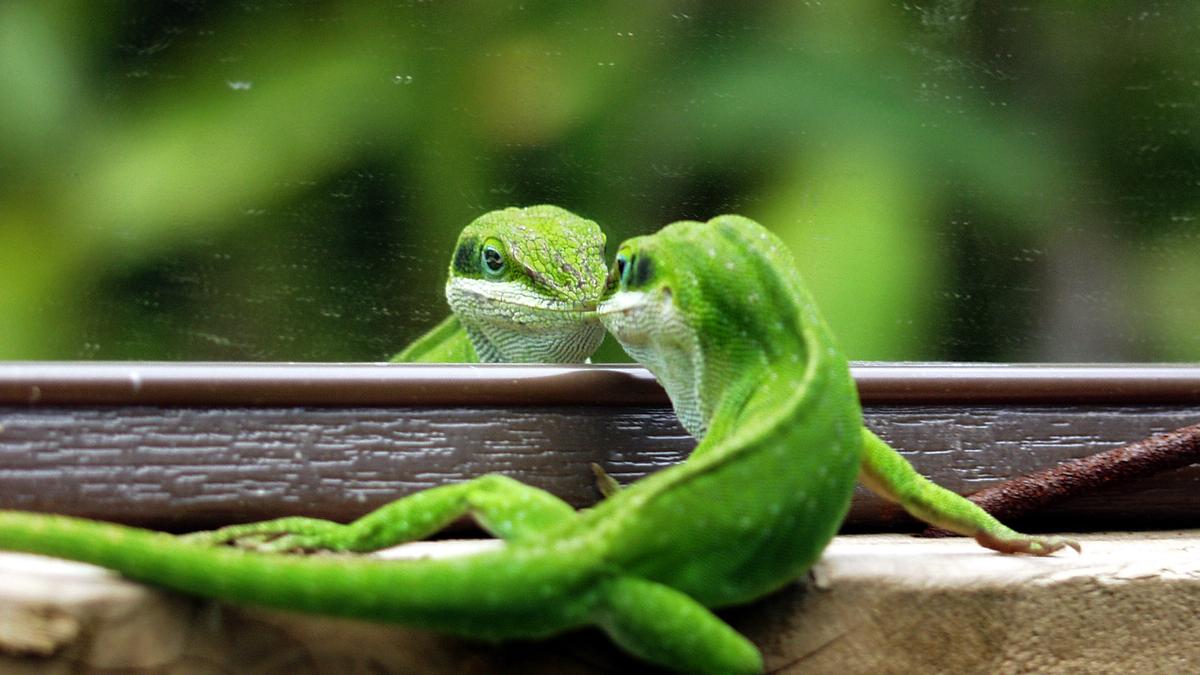
Did animals develop complex brains to deal with challenging habitats? Premium
The Hindu
In a paper published recently in the journal Biology Letters, researchers have said the cognitive demands imposed by challenging habitats could have forced animals to evolve more complex brains.
“Most people are scared of them. Why would you want to look at something that’s scaly and has a creepy crawl?” Levi Storks, assistant professor at University of Detroit, asked this with a chuckle. Yet that’s exactly what got him interested in lizards when he was a child. He would catch them, pet them, and spend hours observing them.
Now, as an evolutionary biologist, Dr. Storks studies reptiles like lizards in a bid to bridge a research gap: we don’t have a complete picture of how brains and the behaviour of their animals are linked.
Traditionally, complex behaviour has been linked to brain size and the brain-to-body size ratio. But researchers have unearthed new insights that complicate this picture. Analysing the brains of closely related lizard species from the lush green biodiversity of Puerto Rico, for example, Dr. Storks and his team found signs of a relationship between diverse habitats and brain complexity.
In a paper published recently in the journal Biology Letters, the researchers wrote, “Cognitive demands are likely higher in more complex habitats, as an animal must coordinate movement along a larger number of potential paths.”
Lizards are a broad group of reptiles that includes a large variety of species with diverse characteristics. Anoles are a specific type of lizard known for their distinctive features, including an ability to change skin colour, the presence of a dewlap (a throat fan), and adhesive toe pads to climb vertical surfaces. Anoles are particularly common in the Americas, especially in tropical and subtropical regions.
Puerto Rico is an island in the Caribbean sea. Its forests are a mosaic of diverse ecosystems, including tropical rainforests like the El Yunque (montane cloud forests) meeting dry forests. The island is home to unique flora and fauna, including endangered species, and is very biodiverse.
It was summer both times — in 2019 and 2021 — when Dr. Storks went to Puerto Rico to collect specimens with his team members.“There were lizards literally everywhere,” he remembers. “That’s one of the reasons why people study anoles here,” in their rich natural environment.

VinFast’s entry into India is a strategic one, and it comes with real investment. The company is setting up a manufacturing facility in Tuticorin, Tamil Nadu, with an initial capacity of 50,000 vehicles per year, scalable to 150,000 units annually. With an investment of up to USD 500 million, this is not a soft launch—it is a full-fledged push into what is one of the world’s most promising auto markets.

On June 7, 1742, Prussian mathematician Christian Goldbach wrote a letter to Swiss polymath Leonhard Euler. Why does it warrant attention, you seem to be asking. Goldbach outlined a conjecture that bears his name in this letter, a conjecture that is now one of the oldest and most famous unsolved problems in all of number theory. Intrigued? A.S.Ganesh hands you more details about Goldbach and Goldbach’s conjecture…

 Run 3 Space | Play Space Running Game
Run 3 Space | Play Space Running Game Traffic Jam 3D | Online Racing Game
Traffic Jam 3D | Online Racing Game Duck Hunt | Play Old Classic Game
Duck Hunt | Play Old Classic Game









